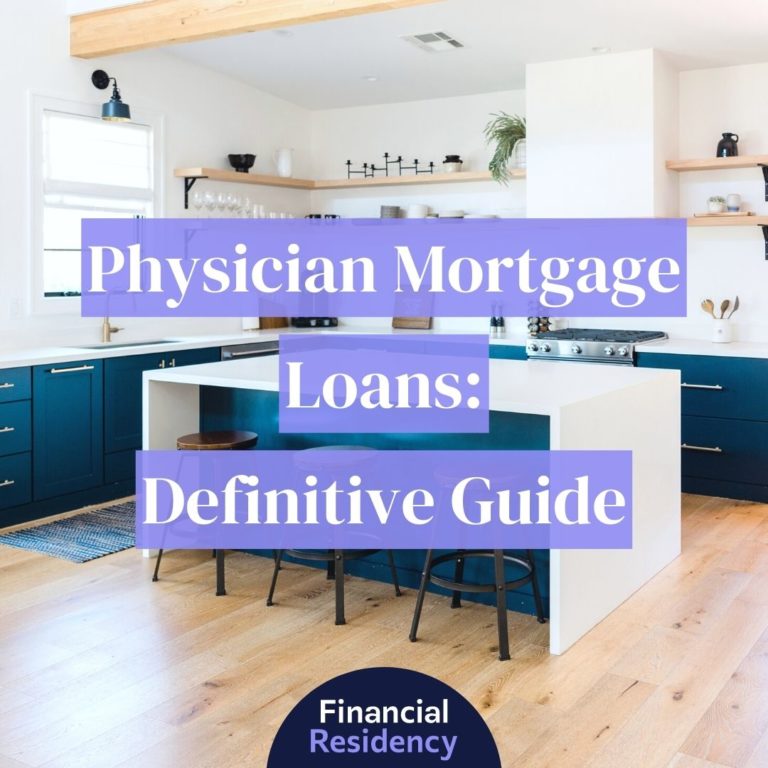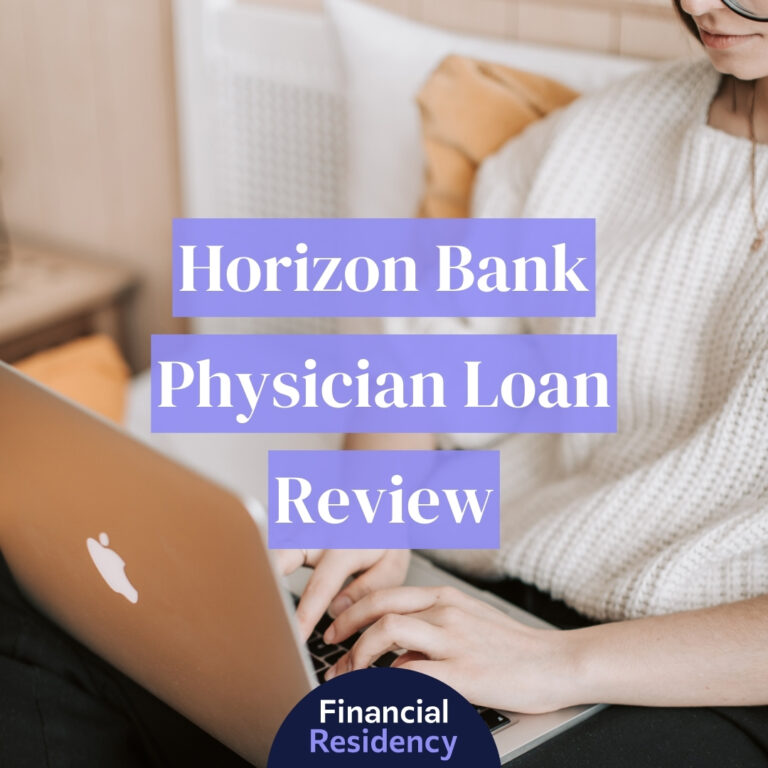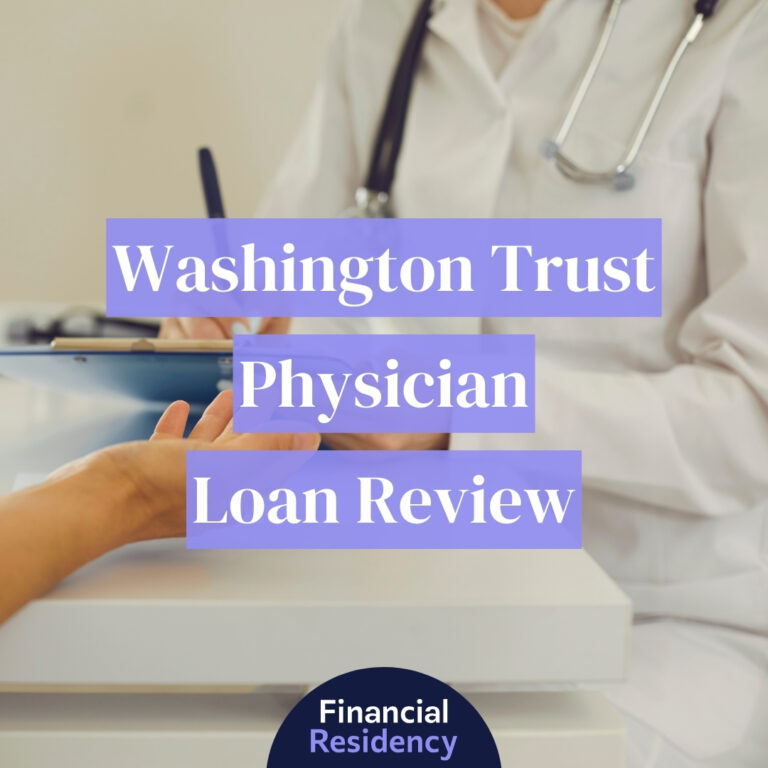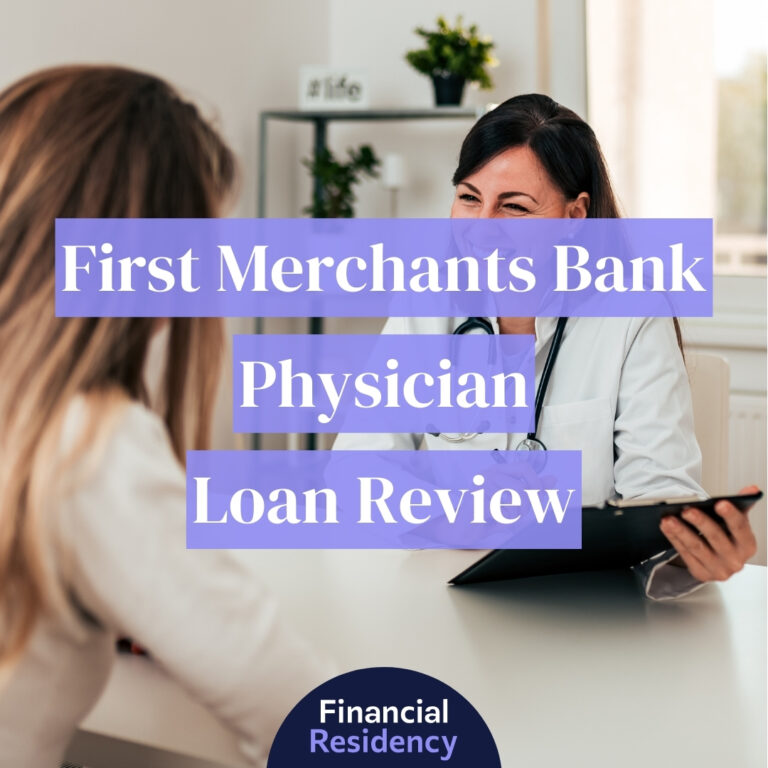First Citizens Community Bank is a highly-rated bank offering mortgages in addition to a range of other consumer and business banking solutions.
FCCB is one of the few regional banks to offer physician mortgage products. Both its financing and credit score guidelines are more lenient than many other similar programs. Learn more in this First Citizens Community Bank review.
About First Citizens Community Bank
First Citizens Community Bank (FCCB) was founded in 1872 in Mansfield, Pa. as Ross and Williams Bank. Over the years, the bank has gone through a number of mergers, acquisitions, and rebrandings. Since 2022, FCCB has been publicly traded on the NASDAQ.
Today, FCCB is Pennsylvania’s 22nd-largest financial institution and 16th-largest bank. It has 33 branch locations in four (4) states: Pennsylvania, Delaware, New York, and New Jersey.
- BBB score: A
- CEO: Randall E. Black
- JD Power Score: 838
- Parent company: Citizens Financial Services, Inc.
- Phone number: 1 (800) 326-9486
- Services offered: Business, agricultural, and consumer banking services. Consumer offerings include checking and savings accounts, escrow savings accounts, money market accounts (MMAs), health savings accounts (HSAs), certificates of deposit (CDs), credit cards, home equity financing, and mortgages including FHA loans, VA loans, and medical loans.
First Citizens Community Bank Physician Loan Fast Facts
Here are a few fast facts about First Citizens Community Bank’s physician mortgage loan program.
- Discounts: No advertised promotions.
- Financing options: 100% financing up to $1 million. Additional financing may be possible with a down payment of 5% to 15%.
- Physician loan products: Fixed-rate (15-year, 20-year, or 30-year) or 80/20 mortgage options.
- Maximum loan amount: *$1.75 million
- Qualifying degrees: MD, DM, DO, DPO, DDS, DMD, PA, CRNA, CRNP, and DPT.
- Private mortgage insurance (PMI): Not required
*No maximum figure is published on the First Citizens Community Bank website, however, this figure has been circulated by bank loan officers on third-party informational sites. Speak with a bank representative about the maximum loan amount you may qualify for based on your personal financial circumstances.
Physician Loan Qualifications
First Citizen Community Bank’s physician loan qualifications are:
- Good to Excellent Credit: **700 minimum FICO score
- Down Payment: 0–15% down payment depending on the loan amount
- Owner-Occupied Property: Must be used to build, purchase, or finance a primary residence.
- Eligible Degree: Medical, doctor of osteopathy, doctor of physical therapy, doctor of podiatry, dentist, physician assistant, nurse practitioner, or nurse anesthetist
- Significant Savings: No stated requirements for cash reserves
- Verified Income: Future-dated employment contract or three (3) or more years of tax returns
**Some mortgage loan officers at First Citizens Community Bank have been known to work with borrowers who have a 680 credit score.
How to Apply
Here are the general steps you’ll need to complete when you apply for a physician mortgage. Knowing what to expect can make the home-buying process go more smoothly.
Get Pre-Qualified
This is the very first step where you provide some basic information such as occupation, first-time homebuyer status, household income, debts, and total monthly expenses. Then, the bank will let you know the loan options and type of financing you might qualify for.
Often, this is a soft credit pull with a rough amount calculated from your lender. This ballpark figure gives you an idea of how much house you may be able to afford.
While this information can be helpful, it’s no guarantee of your ultimate loan approval amount or any future mortgage approval at all.
Prepare Your Documents and Review Your Credit Report
Get ready for the paperwork. Banks and credit unions must diligently review potential homeowners’ income, debts, and assets to determine their risk. They will request a number of documents for you to prove your identity and financial and occupational eligibility.
Some of these documents may include:
- Bank account statements
- Tax returns (1-3 years)
- Proof of income (1-2 months of pay stubs)
- Proof of future employment (signed contract)
- Proof of medical credentials
- Social Security number (SSN) card
- Driver’s license or government-issued identification card
Banks may request additional documentation (including a written statement) regarding specific debts or assets.
Credit Review
The lender will review your credit score, doing a hard pull of your credit report. The lender is looking for a consistent, on-time payment history and no delinquencies or judgments. They’re also for the number of credit inquiries and total lines of credit.
While a credit report doesn’t show your employment or salary history, lenders can use it to see your total debt load and calculate your overall debt-to-income ratio.
First Citizens Bank generally requires a minimum credit score of at least 700 to get a physician loan. However, some qualified borrowers may receive approval with a 680. These guidelines are fairly lenient, as many other banks will require at least a 720.
Make sure to review the credit report to ensure the accuracy of the data. Look for any errors or entries that you don’t recognize.
Get Pre-Approval
This process is more formal than the earlier pre-qualification. You can complete this in person with a loan officer at an FCCB branch, or you can initiate the process online.
You will receive a pre-approval amount letting you know the total amount of financing you qualify for. With a doctor loan, many new physicians will qualify for $1 to $2 million. This pre-approval amount is valid for up to 90 days, so buyers generally hold off on the pre-approval phase until they are ready to put in an offer.
By this point, most borrowers have already begun looking at homes with a real estate agent. They’ve had a rough idea of their price range and generally (hopefully) the pre-approval amount is within that range.
Confirm and Lock in the Rate
After completing the mortgage application in full, an assigned loan officer will reach out to you to confirm your total financing amount, loan terms, and interest rate. This rate is locked in for 45 days, however, it can change when you close on your home based on several factors.
- Interest rate fluctuation, due to shifts in the market or changes in Federal Reserve policies
- Change in employment or income
- Change in credit score
- Change in debt-to-income ratio
- Loan-to-value ratio changes where there is a discrepancy or change in the appraised values of the property
- Switching the type of loan product, such as going from fixed-rate to an ARM
- Change in lender’s internal policies for underwriting criteria
- Expiration date — if there are delays in closing, it can impact the lock-in rate
- Change in property type, such as switching from a single-family home to a triplex
Additionally, it’s not uncommon for a bank to offer conditional pre-approval. Caveats may be imposed, such as needing to improve your DTI ratio in order to obtain financing.
From pre-approval to closing, don’t do anything that could impact your credit score such as taking out financing for new appliances or furniture.
Discover The Best Lenders Answer just a few questions about your career, where you're buying, and how much you want to borrow. Our service will then show you the exact programs you're eligible for from vetted physician loan specialists who will guide you through every step of the process – obligation-free!
FCCB Physician Loan Alternatives
If First Citizens Community Bank does not offer financing for the state you live in or for your medical profession, many other banks offer financing options for you to consider.
1. KeyBank
Ohio-based KeyBank has an excellent physician loan program that offers up to $3.5 million in financing. While there are no zero money-down mortgage options, it does have generous mortgage caps and borrowers can use funds to finance a first or second home. Additionally, Key Bank offers financing up to 95%.
Key Bank funds both fixed-rate and adjustable-rate mortgages (ARMs) and has no PMI requirement.
The program does have a narrower scope for qualifying professions though. It’s open to Doctors of Medicine (MD), Doctors of Osteopathic Medicine (DO), Doctors of Podiatric Medicine (DPM), Doctors of Dental Surgery (DDS), and Doctors of Dental Medicine (DMD). Interns, residents, and fellows in these fields are also eligible.
Additionally, the mortgage process is known for going fairly quickly with Key Bank as it does all of the loan underwriting, origination, and servicing in-house.
2. First Horizon Bank
Memphis-based First Horizon Bank (not to be confused with Horizon Bank headquartered in Michigan City, Indiana) offers a popular physician loan program that provides 100% financing for mortgages up to $750,000 and financing up to $2.5 million with a down payment.
When determining mortgage eligibility, First Horizon will exclude student loans from the debt-to-income ratio calculations if student loans are not delinquent and on deferment for 12 months or more. Also, similar to FCCB and Key Bank, First Horizon does not asset private mortgage insurance.
First Horizon’s medical loan program is open to limited medical professionals: Medical Doctors (MD), Osteopath Doctors (DO), Podiatrists (DPM), and Oral and Maxillofacial Surgeons (DDS and OMS). Additionally, borrowers must be First Horizon Bank customers and hold a checking account. With online banking, consumers can easily open an account.
3. Flagstar Bank
Flagstar Bank, based out of Troy, Mich., is the nation’s seventh-largest bank originator of home loans. It also offers one of the largest, most inclusive physician mortgage programs. Their medical loans are open to a vast range of medical occupations, including nurses and pharmacists, along with many non-medical occupations.
Eligible degrees for a Flagstar physician loan include:
- Medical Resident (Educational License)
- Medical Doctor (MD)
- Doctor of Dental Surgery (DDS and OMS)
- Doctor of Dental Medicine (DMD)
- Doctor of Optometry (OD)
- Doctor of Ophthalmology (MD)
- Doctor of Pharmacy (PharmD)
- Doctor of Podiatric Medicine (DPM)
- Doctor of Osteopathy (DO)
- Physician Assistant (PA)
- Registered Nurse (RN)
- Certified Registered Nurse Anesthetist (CRNA)
- Nurse Practitioner (NP)
- Clinical Nurse Specialist (CNS)
- Airline Transport Pilot (ATP)
- Certified Public Accountant (CPA)
- Attorney (JD)
- Veterinarian (DVM)
Flagstar Bank will also provide mortgage funding to H1-B visa holders when most similar homeownership programs are open only to U.S. citizens and Green Card holders.
Eligible consumers with a credit score of at least 720 can finance up to $1 million with zero down payment, or up to $1.5 million with a low down payment. Additionally, Flagstar also has no PMI requirement for its physician loan program.
Although not a large large national bank, Flagstar is a medium-sized large bank and delivers nationwide convenience such as 436 branch locations and originates mortgages in all 50 states.
4. Huntington Bank
While it’s a regional bank, Huntington Bank does have a large national presence with more than 1,000 branches throughout 11 states. With over $187 billion in assets, Huntington is Ohio’s fourth-largest state-based financial institution (just behind third-ranked KeyBank).
Huntington’s physician mortgage program is open to Medical Doctors (MD), Doctors of Optometry (DO), Doctors of Podiatry (DPM), Dentists (DMD, DDS, OMS), and veterinarians (DVM).
The program offers flexible finance options and lenient credit score requirements. A minimum of 700 is required, but borrowers with lower scores may qualify if they can put down a larger down payment.
Financing options include:
- 0% down payment on loans up to $1 million
- 5% down payment on loans up to $1.5 million
- 10% down payment on loans up to $2 million
Huntington Bank may also have an easier loan application process for borrowers with significant debt. Huntington does allow debt-to-income ratios as high as 50% for physician loans, and they will exclude student loan debt from their DTI calculations for student loan payments on deferment for at least 12 months.
5. U.S. Bank
As one of the nation’s largest banks, U.S. Bank offers physician mortgage financing (and refinancing) across all 50 states. Their program is available to eligible doctors, residents, and fellows. Additionally, lender credits or points are available for existing bank customers for a discount of up to $1,000 off the total loan amount.
The U.S. Bank program is open to professionals with a Medical Doctor (MD), Doctor of Osteopathy (DO), or Juris Doctor (JD) degree. Eligible borrowers can receive a loan of up to $2.5 million, and the bank has fixed-rate and adjustable-rate mortgage options.
While U.S. Bank does not offer 100% financing (mortgages with no down payment), it does offer financing of 95% on loans up to $2 million and there is no PMI requirement.
Borrowers must have a minimum 710 credit score and at least three (3) to 12 months of cash reserves depending on the loan amount. Additionally, U.S. Bank does not exclude medical debt from your debt-to-income ratio.
As Chase Bank and Wells Fargo do not offer physician mortgages, U.S. Bank is one of the few Big Six financial institutions to offer this product.
Pros and Cons of FCCB Physician Loans
Here’s a recap of the pros and cons of First Citizen Community Bank’s physician mortgage program.
Pros
- Fixed-rate and 80/20 mortgage options. Fixed-rate terms of 15, 20, or 30 years. For 80/20 financing, the first 80% is a first mortgage with terms of 15, 20, or 30 years. The second 20% is as a home equity.
- 100% financing options with no down payment required (no maximum loan amount published).
- Lenient credit score A minimum score of 680 to 700 is required.
Cons
- Borrower pays closing costs; no promotional discounts that other banks may offer current customers.
- Mortgage auto payments from FCCB checking are required, however, non-members can open an account online or in-branch.
Frequently Asked Questions
Here are some of the most common FAQs that readers have about the First Citizens Community Bank doctor loan program — and physician loans in general.
Can You Get a Physician Loan with a 650 Credit Score?
Possibly. Generally, financial institutions require a credit score of at least 680 to 700 to obtain a physician loan. Requirements as high as 710 or 720 are not uncommon.
To qualify with a 650 score, you would likely need a very high down payment or significant cash reserves — along with a lender willing to extend more flexible underwriting.
What is the Default Rate on Physician Loans?
There is not one conclusive study, however, existing data shows that doctors have a 0.2% default rate on mortgages — which is significantly better than the national average consumer default rate of 1.2%.





